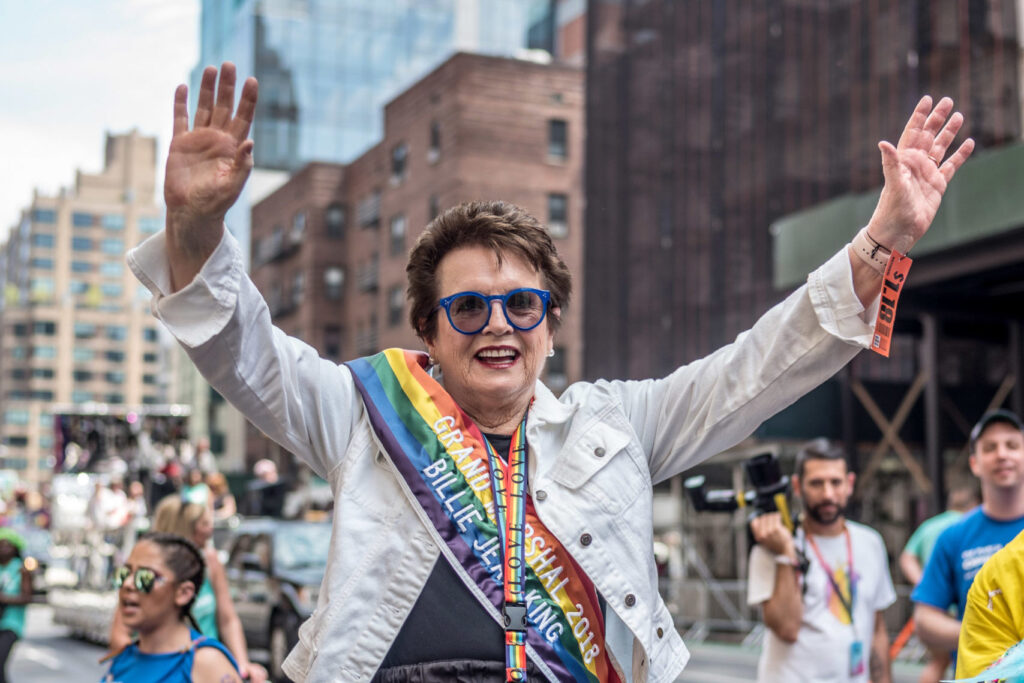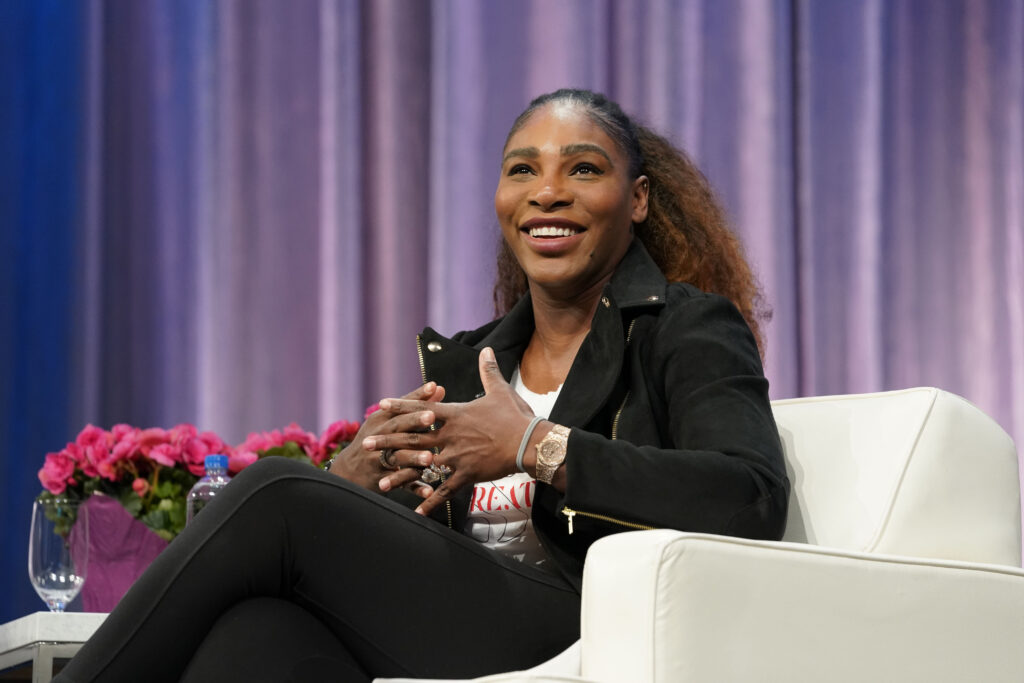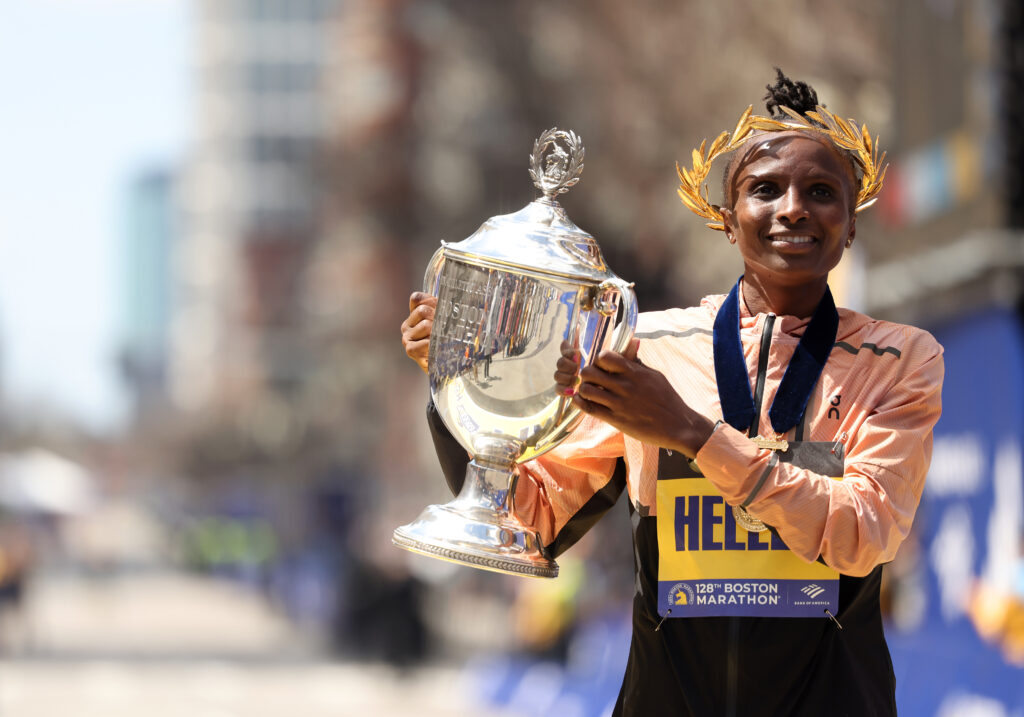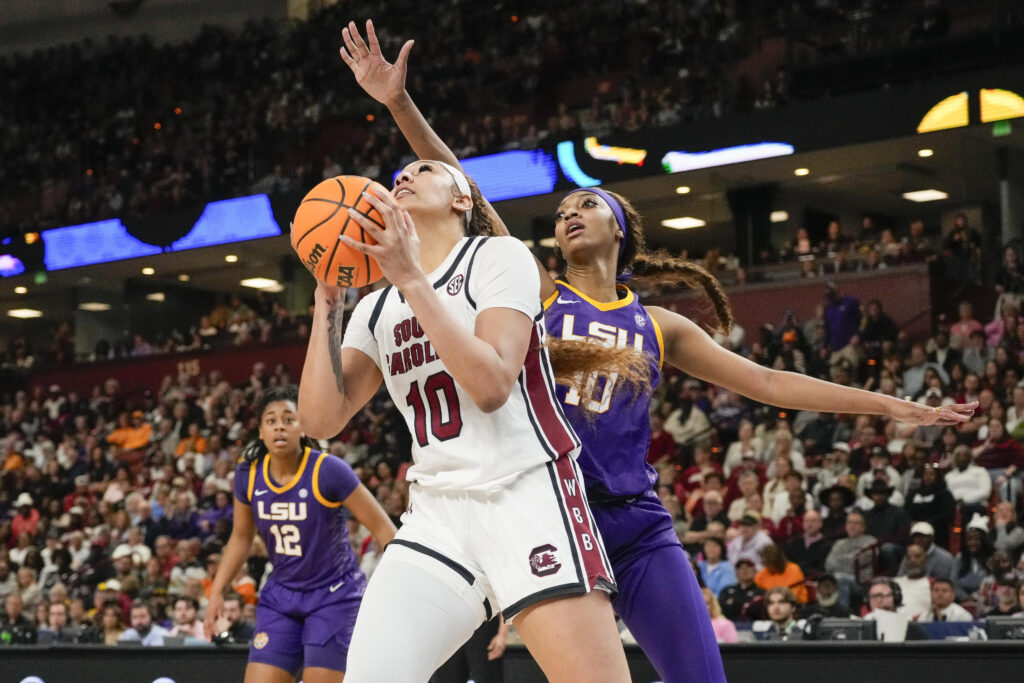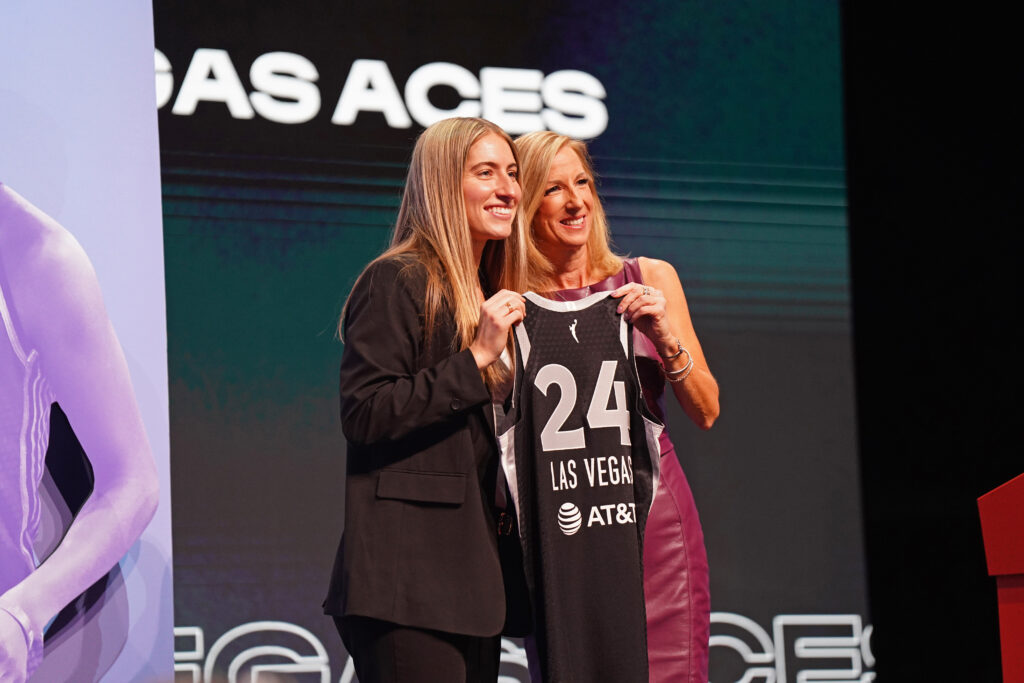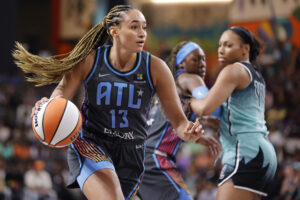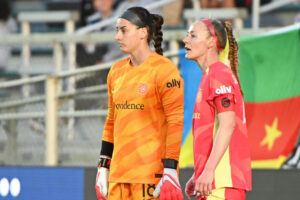It’s rare for social activists to reach legendary status during their own lifetime, but that’s exactly the case for Billie Jean King in her ongoing quest for women’s sports equality.
In a recent conversation with Just Women’s Sports, the tennis icon revealed just how early in life she became passionate about the inequalities she witnessed in the world.
“I knew at 12 years old tennis was my platform for change. I was sitting at the Los Angeles Tennis Club thinking about my sport and I noticed everyone who played wore white clothes, played with white balls, and everyone who played was white,” recalls the now 78-year-old Southern California native.
“I asked myself, ‘Where is everyone else?’ From that day forward, I committed my life to fighting for equality for all.”
The intersection of sport and social change is where King has resided ever since that day at the Los Angeles Tennis Club. Luckily, her athletic prowess on the tennis court led to a level of athletic dominance that gave her a national and even global platform for what she had to say.
At Wimbledon in 1966, the then 23-year-old won the first of her 12 career Grand Slam titles, the last coming at Wimbledon once again in 1975. Her tennis awards, accolades and Hall of Fame inductions are impossible to summarize succinctly, but it’s her off-court accomplishments that her 12-year-old self would be most proud of.
When the existing structures didn’t aptly respond to her calls for equal prize money among men and women, she started the Women’s Tennis Association in 1970 along with eight fellow players, now known as the “Original 9,” and became its first president. A few years later, she started the Women’s Sports Foundation. The organization, dedicated to enhancing girls’ access to all sports and defending the nascent Title IX legislation, broadened her influence well beyond tennis.

Looking back almost 60 years after her first Grand Slam title at how far the sports world has come, King has no intention of taking her foot off the gas pedal.
“It’s not enough, and there is much more to do. Women’s sports have come a long way, but we are still very much in our infancy, especially when you compare us to men’s professional sports,” she says. “The best example is the NBA has been around more than 75 years, and the WNBA has been operating for just over 25 years. You cannot compare the two as it just isn’t apples to apples. We arrived in the marketplace later and we need a chance to show what we can do.”
Though she still believes that tennis is “the leader in women’s sports today,” she knows progress across the sports spectrum is essential, serving as a mentor for women’s teams and athletes throughout the U.S. With a front-row seat to the ebbs and flows of that progress, King has a unique perspective to demarcate key advances over the decades.
“The success of women athletes at the [1996] Atlanta Games spoke loud and clear about the future of women’s sports in this country and beyond. But women’s professional sports are just now starting to gain traction,” she says. “The NWSL is a bright star right now. I was at the Angel City FC home opener, and it was a special moment in history. The salaries are up in the WNBA. More than 40 percent of all professional athletes are women, yet we still only receive 4 percent of the media coverage.
“When that needle starts to move forward, women’s sports will really grow. The bottom line is we need everyone to invest in and champion women’s sports.”

Always one to let her actions speak louder than words, King’s own investment firm, BJK Enterprises, has now invested in the Los Angeles Sparks of the WNBA, Angel City FC of the NWSL, the Professional Women’s Hockey Players Association and Just Women’s Sports. But pushing for successful women’s pro leagues and equal pay with male counterparts is not where her agenda ends.
She always has her eye on the next crucial battlefronts in the pursuit of sports equality for all.
“Looking ahead to the next 50 years of Title IX, we must increase compliance with the law and find a workable solution for name, image and likeness laws,” she says. “Most importantly, we need to give attention to those who have thus far been left behind: defining inclusive opportunities for transgender athletes, athletes with disabilities, and girls and women of color.”
A quick scroll through King’s social media posts reveals her relentless drive to both honor the progress we’ve made and call for action on the work yet to be done. In the past few decades, other female athletes have reached legendary status in their own right, but they have all — knowingly or not — stood on the shoulders of Billie Jean King.
Editor’s Note: This story is a part of the Just Women’s Sports inaugural Legends Collection. Check out our stories on the other legends, Sheryl Swoopes and Brandi Chastain.
Tessa Nichols is a contributing writer at Just Women’s Sports.
